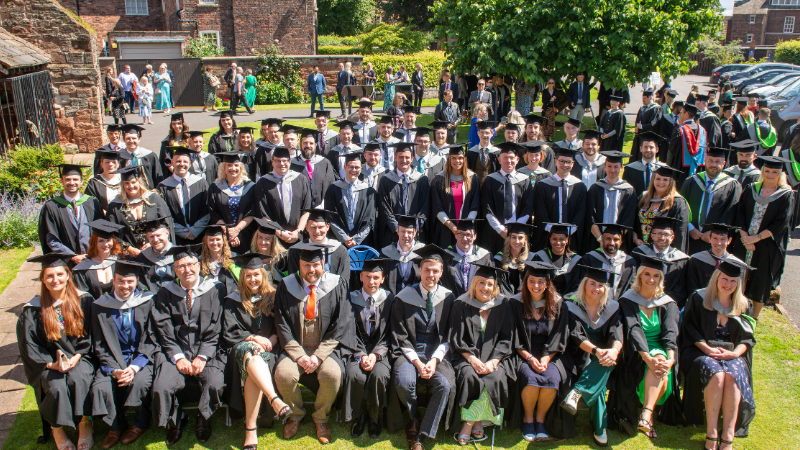
They were among over 200 apprentices from England in the first cohort to officially grduate form the University of Cumbria in front of family and friends
Of those graduating, 74% achieved an upper-class degree*, 32% of those received a first-class degree, illustrating the high calibre of graduates from the programme.
The apprenticeship boosts England’s paramedic workforce by up-skilling front line ambulance staff, such as, emergency medical technicians, to fully qualified paramedics in two years. Apprentices continue to work on the front line as they train.
Paramedic Daniel Chester was one of four people to be awarded prizes as part of the proceedings for high achievements over the course of their studies. He received the ‘Innovation in Paramedic in Medicine Prize,’ for his dissertation that received a first-class mark. 

The apprenticeship takes two years to complete, as opposed to three years via the traditional undergraduate route, and lets apprentices work on the front line, responding to 999 calls, as they train.
The BSc (Hons) Paramedic Science (Apprenticeship) Degree was devised by the University of Cumbria two years ago to address significant ongoing workforce shortages in the profession. Seven of 11 English ambulance trusts joined the programme, which currently delivers over 600 trained paramedics for the NHS workforce annually.
According to recently published NHS Long Term Workforce Plan, the NHS will need to increase the numbers of paramedics by 50% in nine years.
Tom Davidson, Director for the Centre for Excellence for Paramedic Practice, at University of Cumbria, is the innovator behind the university’s unique approach to paramedic education.
He said: “It is clear in the NHS Long Term Workforce Plan that paramedics are integral to the success of the plan and the future of the NHS. Paramedics are specifically mentioned 18 times in the document, more than any other allied health profession.
“We are proud that graduates from our paramedic apprenticeship, delivered in partnership with seven English ambulance trusts, will directly boost the NHS workforce and contribute towards the ambitious targets set out in plan.”
Carol Offer, NWAS Assistant Director for Workforce & Organisational Development, said, “Congratulations to all our students who have graduated this year, and we are equally pleased to see Daniel pick up his special award. It is fantastic that the first cohort has now completed the course, and I’m delighted to see all their hard work pay off.
“The programme is proving to be a great success and is becoming an incredibly popular route for our front-line staff to develop their clinical skills whilst maintaining a full-time role at NWAS. We see the equivalent benefit of being able to develop and enhance our own workforce. We currently have seven cohorts on the course, with three starting every year. I look forward to seeing how they develop within the paramedic profession.”